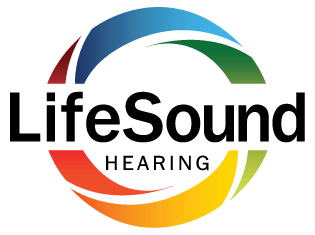As we get older, we have a tendency to keep a close eye on our health, regular exams, blood pressure checks, and eye tests. Our hearing is a crucial element that is frequently neglected.
Many individuals are not aware of the prevalence of hearing loss, which often develops gradually, specifically as people reach the age of 50 and older. The positive side is that routine hearing assessments are swift, non-invasive, and can have a profoundly positive impact on both your physical well-being and daily life.
Hearing impairment: a common problem that is often undetected
Not all instances of hearing loss are as easily detectable as constantly raising the volume or frequently requesting people to talk louder. At the outset, the signs might be faint, manifesting as difficulties following conversations, particularly in noisy settings, or a growing sense that others are talking indistinctly.
In fact, 1 in 3 adults over age 65 are experiencing hearing loss, and around 28% over 52 have difficulty with daily activities because of this. The main issue stems from the fact that hearing loss tends to advance gradually, leading people to frequently undervalue the extent of their impairment until it begins to affect their social connections, work performance, or emotional health.
The importance of regular hearing tests for adults over 50
Just like a yearly physical or vision screening, a hearing test is a proactive way to protect your health. Here’s why they make a difference:
Detecting problems promptly leads to taking immediate steps
It is easier to manage hearing loss when recognized early. Regular screenings enable audiologists to monitor changes and recommend treatments before the problem progresses further.
Hearing health is connected to brain health
Research has shown that untreated hearing loss is linked to an increased danger of cognitive decline and dementia.
When hearing is compromised, the brain expends more effort to compensate for the missing information, resulting in increased mental exhaustion and a decline in mental abilities over time.
Strengthened communication leads to more solid relationships
Hearing loss can cause aggravation, social solitude, and even depression. When you’re constantly straining to hear or misunderstanding others, it can take a toll on your personal and professional life. Managing hearing issues helps maintain meaningful relationships.
Balance and safety can be impacted by hearing
Your ears do more than help you hear– they also play a role in your balance and spatial awareness. Hearing loss has been linked to an increased risk of falls, specifically in older people.
What is a hearing test like?
A hearing test is basic, painless, and usually takes less than an hour. You’ll consult with an audiologist who will:
- Discuss any symptoms or worries
- Make use of headphones to assess your auditory perception of various frequencies
- Carry out tests like speech recognition
If hearing impairment is detected, you’ll explore potential strategies, including wearing hearing aids, using assistive listening devices, or making adjustments to your daily habits to enhance your overall auditory health.
How often should you get a hearing test?
Experts suggest a baseline hearing exam at age 50, followed by annual or biannual checkups, particularly if you:
- Detect some amount of hearing decline
- Have a family background connected to hearing issues
- Are exposed to loud noises on the job or in past workplaces
- Already wear hearing aids
Don’t hesitate to have your hearing examined
Your hearing impacts how you connect with the world. Routine assessments after 50 can help you stay sharp, social, and independent– and they’re one of the easiest health checks you can get.
Not certain where to begin? Reach out to us now to schedule a comprehensive hearing assessment. Whether you’ve observed changes or just want peace of mind, hearing specialists are here to support your hearing– and your health– every step of the way!

